Bluebird Update
It's time for an update on the three "abandoned" bluebird nests here on the farm. The orchard box, which has had three cold eggs in it for a couple of weeks, is truly abandoned. The eggs are addled--I can see the big gas space in each one, taking up half the contents. Too bad. I'll probably never know what happened there, but I suspect the female has been killed.
The driveway box, which had two cold eggs in it on July 17, had three cold eggs in it July 21. I was stunned. I'd never seen a bluebird leave eggs cold in the middle of the summer. I even touched them to my lips to make sure. (Mothers know that our lips are finely calibrated instruments, able to tell a child's fever within a half-degree. We put digital thermometers to shame. Might as well throw them out.) Yes, they were cold. What to make of that?
On July 28, I checked the nest again, and a female bluebird flew out! So! She had finally started incubating! I couldn't wait to see whether any of these eggs would hatch, and how long she'd have to incubate them. I checked the nest again on July 31. And all three eggs were pipping.
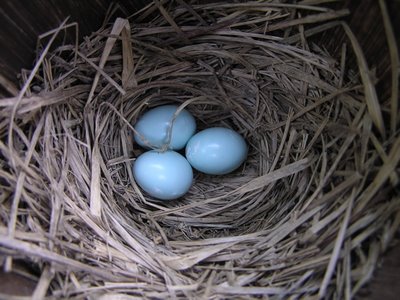 Well, I'll be a monkey's uncle. She must have started incubating July 18, right after I found the two cold eggs. It had been an entirely normal 14-day incubation period. Perhaps her inattentiveness was due to the high ambient temperatures. She could get away with leaving them for long periods. I stood there, grinning foolishly, glad to be duped again. Just when you think you know a whole lot about bluebirds, they pull the rug out from under you.
Well, I'll be a monkey's uncle. She must have started incubating July 18, right after I found the two cold eggs. It had been an entirely normal 14-day incubation period. Perhaps her inattentiveness was due to the high ambient temperatures. She could get away with leaving them for long periods. I stood there, grinning foolishly, glad to be duped again. Just when you think you know a whole lot about bluebirds, they pull the rug out from under you.On to the oilwell box, where I intervened and fed the starving nestlings. Lost one, but three survived, and both parents came back, doubtless encouraged by the dish of mealworms I kept refilling on the roof of their box. Here they are on July 31.
Three little girls, 13 days old.
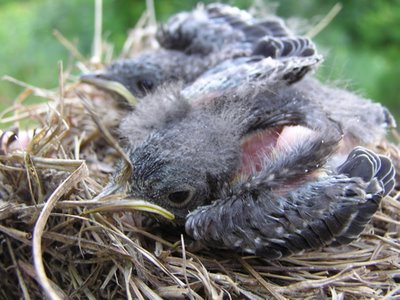
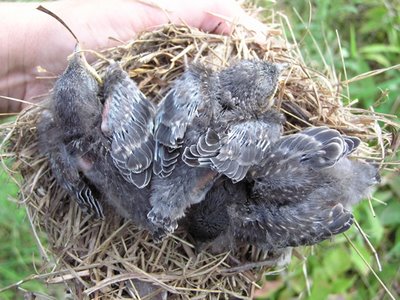 You can tell by their brownish-gray their flight feathers that they're females. There'd be a lot more cobalt blue in a male's wings by Day 13.
You can tell by their brownish-gray their flight feathers that they're females. There'd be a lot more cobalt blue in a male's wings by Day 13.And here's the same clutch at Day 16. The others are hiding behind her. I wouldn't normally peek in a box with chicks this old, but these are developing more slowly than normal due to their early deprivation. And I just had to see them one more time. I've been schlepping mealworms out to them for 10 days, for crying out loud.
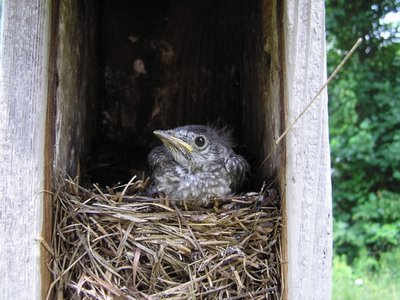 I do believe they're going to make it.
I do believe they're going to make it.When Chet and I take our hike out to the oilwell box, we pass the box turtle nest, now well overgrown, but still armored against all comers. I love to think of the porcelain treasures developing just below the surface of the earth.
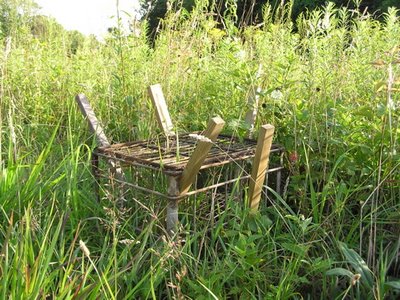

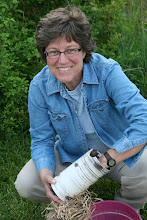




<< Home